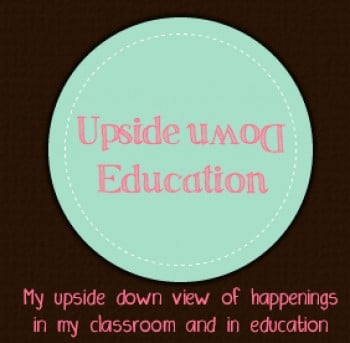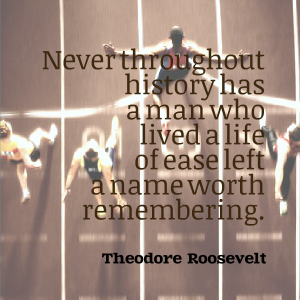Rigor. I hate that word. Reminds me of dead bodies. It has been a pretty popular word in education lately, especially since Common Core. It is a word many aren’t sure of the meaning. It’s definition is kind of the opposite of what kids endure on a regular basis. But even as much as I hate the word, I completely agree the idea behind it not only needs to be present in every classroom, but is something we cannot have STEM or any kind of advanced learning without.
Last week I had a meeting and in that meeting it was brought up that a complaint (which I have had a lot of this year and it’s something I’m not used to) a parent had about my class is that the student was struggling and the parent did not want the kid to struggle. It has really stuck in my mind and I had been researching (because that is all I have done this year), thinking, and trying to play out in my head about learning and struggles.
I have written before about failure and it’s importance when learning, but the struggles are not something I have evert stopped and thought about.
I feel like I need to point this out to give you a background on my class –
1. I teach technology elective and there has been a lot of discourse over whether an elective should be an easy A class. I wish I did not have to give grades here so we could focus on the learning.
2. My class is really not that hard. Yes the technology is mostly something new, but it is not hard stuff. I have actually made sure that I could find 2nd and 3rd graders who have done the same.
3. This is my first year teaching the class. I had 2 weeks to prepare for it. I have had to write my curriculum as I teach it. I have re-written this said curriculum as I have seen what works and/or researched methods, which is probably at 100 times now.
4. This class is 90% PBL using authentic assessment.
5. Classwork grades are mostly based on kids successfully completing small portions of the projects by deadlines (give or take a few days). Classwork must be 20% of grade says my district higher ups.
6. Finished projects are graded on a huge spectrum from the research to the correct use of tech, not on just being pretty. This assessment grade is 70% of the grade.
7. This is the first time my students have had any experience with PBL.
Ok back to the post. Struggle. I love science and math. Struggle comes with science and math. The entire scientific method has to have struggle to even work. There must be variables, testing, and going back to test again. That is not a do ‘without thinking’ task. But are struggle and rigor the same thing? When I look up rigor is almost always defined as the depth of understanding, questioning, and application. So maybe these words are not synonymous. But I can’t help but think that you can’t have rigor if something is simple. It takes searching and testing for answers or to see if it works. To me that is a struggle. It is not something that is easy. If you can do something the first time, did you really learn from it? If you can memorize it, are you learning it?
I read this article a while back and it has stuck with me. The title alone is “The More You Struggle with New Information, the More Likely You Are to Learn It.” It goes on the say that struggle is an essential part of learning. If that is correct, when we teach students to learn through rote memorization, are we helping or hurting? While searching for answers on this I came across this article from NPR about struggle in a Chinese classroom. It talks about a student who does not understand a math activity and the teacher makes him go to the board and do it in front of the classroom, and then talks about the class cheering for the student when he gets it right. No I would never do that in my classroom and I worry often if classrooms from the East are lacking in creativity but it has a point. The student had determination and then had a huge sense of accomplishment when he was done.
Look at sports. I love sports. I love watching. I was a cheerleading coach for years (yes it is a sport). My 8 year old daughter spends 5 hours a week in gymnastics class. If she didn’t struggle, then she would not have to go but for an hour a week. I still know every motion to the “UCA All Star” cheerleading dance I learned in 10th grade. It was so hard and I was 2 years younger than the other girls trying out, I practiced more for that dance because I could not get it. (I did eventually and I made All Stars that camp.) But because of that struggle, it stuck with me. I was a better cheerleader for it. I’m a Bama football fan, if you know who Nick Saban is, I really don’t need to draw a parallel here.
But with all of this said, struggle cannot be the only factor and rigor does not mean hard. You can’t give extra work and make it harder and call it rigor. Struggle needs to just be a part of it. There needs to be fun. There needs to be student centered motivation. There needs to be the problem solving aspect. There needs to be some passion. It is just a part of the whole. Just like the PBL lesson it self, there has to be many parts to make a whole in the end. Without each part, the learning goals are not really met. I don’t know if I am hitting each part with every lesson. I try.
This school year I’m learning. I’m struggling. I have never struggled with curriculum before. I’ve never struggled with teaching the way I have this year. BUT I know I have learned so much. I know what works with PBL and middle school kids. I know what does not work as well. I hope my sharing with y’all these “struggles” I am learning from are helping y’all in some way. Someone called me an “expert” in PBL the other day and I laughed because I have had as many failures as successes this year. You should see my private journal! Ouch! But I looked back on a PD session I was asked to give last summer on PBL, if I gave it again tomorrow, not much would be the same. There is a huge difference between having that text book knowledge of something you did 2 or 3 times a quarter and something you do everyday. I knew what PBL was, how to do it, etc, but now my knowledge is so much deeper and clearer.
If life is easy, we do not learn from experience. We would not be able to take that experience when harder things come our way. We have to find a way to give our students these experiences. We have to find a way to do it while encouraging as well. We have to celebrate the successes that come from that struggle. I think that part is forgotten. I have had so many successes in my classroom this year, but no one calls the principal about those or send me an email about how awesome their child’s website is. I know how that feels, so I know I have the goal of always pointing out the success that comes from the struggle with my students. Just like the story of the classroom in China, they celebrated when he got it. A “good job on ___” can go such a long way. The struggle cannot be the finish, just the path to get there. That means I have a finish line this year, right?
More links I like about rigor and learning through struggle:
Rigor: What Does It Really Mean?
Thoughts on the Meaning of Rigor
We Learn and Grow Through Struggle
Rigor Redefined

